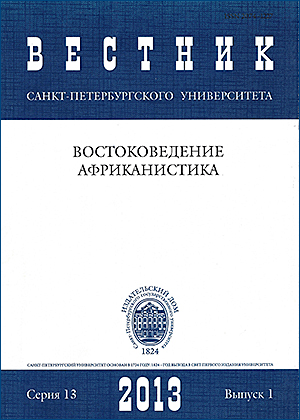Addresses in Japanese and Korean: means of expressing and their usage
Abstract
The Japanese and Korean languages have a wide range of means of making contact between communicating people. One of such means is the address. Studying of addresses is necessary to describe gonorific system of the Japanese and Korean languages. The system of addresses is formed under the influence of perception by interlocutors of their interpersonal relationships. The choice of a form of the address is determined by social and cultural factors of the communicative situation, a speaker, an addressee and their relationships. Speech contact often begins with addressing the interlocutor, and, owing to this, the address reveals the “tone” of all conversation. Due to the lack of in-depth researches it is of interest to Russian Linguistics to study the forms of addresses in Japanese and Korean languages. The article describes the usage of addresses in the modern Korean and Japanese languages and presents a comparative analysis of the data.
Keywords:
address, polite forms, sign of hierarchy
Downloads
References
References
Downloads
Published
How to Cite
Issue
Section
License
Articles of "Vestnik of Saint Petersburg University. Asian and African Studies" are open access distributed under the terms of the License Agreement with Saint Petersburg State University, which permits to the authors unrestricted distribution and self-archiving free of charge.





